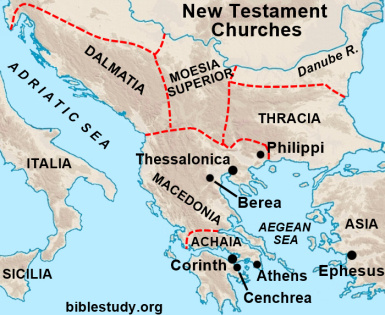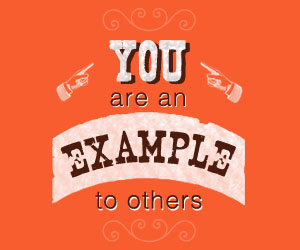Dealing With Problems and Making Decisions [1]
Inevitably when you are a leader you will have to deal with problems. How a leader deals with these troubling circumstances and leads through them is what determines if he/she is a good or “desperately in need of improvement” leader. If you have ever agreed to hold a position where others in the room look to you for what to do when things go wrong then you need to have at least thought about a process for dealing with these problems. In large organizations they call them “contingency plans” but most of us don’t have shelves of three-ring binders we can flip through when disaster comes upon us.
One of the best skills a leader can posses is dealing with problems before they arise (through prayer, advanced planning, training, etc.) but eventually no matter how much you plan there will be times when problems find their way into your life and you have to deal with them.
First and foremost a spiritual leader desires to know the will of God’s concerning what directions or actions they should take. So as one prays, studies Scripture, and contemplates the circumstances consider the following:

Questions to Answer
Am I committed to doing God’s will in this situation? (Romans 12:1-2)
Sometimes the answer is easy and His will is plain, but we are not willing to do it. It may require us to confront someone who will have their feelings hurt, or we know they will become angry, or we may even lose our job (or place of ministry, or at least we think we will).
Sometimes the decision is not so clear, but we must commit to doing God’s will in each step that we know what to do, and when His will is clear. Sometimes as a leader we lay ourselves down “as a living sacrifice” and be willing to “take a hit” so that Christ’s name may be lifted high. Strong personalities, or strong willed people who feel their way is best (instead of the given direction from the leader) will try to take the organization in a direction that may be away from the expressed will of God and toward what benefits them personally. So opposing these people may be difficult for the leader and even his family. So we begin the process by asking how committed is the leader to following God’s will; is he willing to do whatever it takes to see God’s name and will held as the top priority?
Are the desires of my heart to pursue this particular course? (Psalm 37:4)
This Psalm says that when we delight ourselves with the things of God, He will give us the desires of our heart. So our main objective as a leader is to see that God is glorified and that His name is lifted up. When we lead people to do this as well, then it should bring delight to our hearts. Our desire then becomes seeing others give God glory with their lives.
Is the problem something that you feel needs to be fixed (do you even care about it)? Or would it be best to pass off (i.e. delegate) this problem to someone who is passionate about it, or who “has a heart” for that area? If you say, “This is something that we can’t ignore. Something must be done about this,” then make sure your heart is lining up with the commandments and teachings of Scripture.
Does God provide the power to continue working on the project and make the necessary decisions to achieve it? (Isaiah 26:3)
This passage from Isaiah discusses how God gives the mind peace as the person trusts in God. So the leader must make decisions that result from prayer and contemplation but ultimately result in a step of faith where he/she trusts that God will take care of him/her and work through them in the situation. It is easy for others to second guess decisions after time has passed and the problem has passed. But what makes one a leader is that they must make a decision in the midst of the storm. Trust God once you feel you have heard from Him and pronounced a decision.
Also, what makes a spiritual leader different from a secular leader is that they rely on the Holy Spirit for things not provided to those who do not believe and place a saving trust in Christ (such as strength, insight, faith, peace, resources, etc). Does the leader have a sense of peace as they work through the process that the most current decision is the right one?
In determining what to do next in the midst of a problem it is helpful to define some terms.
Definitions
Decision-making; this is choosing between alternatives. Often times the alternatives are not good and bad, but good and good, or good and best.
Problem solving; this is the process of formulating and implementing a plan of action to eliminate a difficulty. Problem solving tends to deal with internal issues.
Conditions; these are currently uncontrollable circumstances superimposed on the situation from outside. A considerable length of time is required to change conditions noticeably. Conditions tend to deal with external issues.
Problem Solving Process
1. Determine if the situation is a problem or a condition. Is the situation coming from outside of the organization or the inside?
2. Clearly state the problem.
3. Determine what will be gained or lost in solving the problem. Don’t create a bigger problem by solving a smaller one.
4. Identify alternative methods and solutions.
5. State the cost of each alternative.
6. Choose between alternatives (as you pray, have Bible study, seek godly wisdom, etc.).
7. Delegate action steps and begin implementation.
8. Evaluate progress.
One of the biggest mistakes leaders make in dealing with problems is that when they are working through this process they don’t take into account the feelings of those in the organization as they begin to make changes. Even if these changes will improve the situation of all concerned, people typically don’t like changes; especially if they don’t play a part in the decision making process. If you are in a “boss-employee” situation then the leader could just state the decision in a memo and be done with it. But in a volunteer organization (such as a church) then people choose to follow or not, the leader has to be sensitive (but not overly controlled by) to other’s feeling and emotions.
The following is a way of asking people how they are feeling and gives an opportunity to discuss the change process as you go through it.
When __________ (occurs), I feel ______________ (state the way you feel), because ________________ (state why you feel that way.)
For example: “When you change things, I feel fearful, because I do not understand where we are going and how it will affect me and my family.”
Your goal is to get honest responses and point them to Scripture and the rationale and reasoning process you have taken to reach the decisions that have been reached.
__________________________
[1] Note: information for this article was taken from notes of Dr. Ken Coley in a class at Southeastern Baptist Theological Seminary entitled Church Administration in 1998.
 (v. 2) “We give thanks to God always for all of you,” – Paul is thankful for the church in Thessalonica because of (v. 3) “work of faith and labor of love and steadfastness of hope in our Lord Jesus Christ.”
(v. 2) “We give thanks to God always for all of you,” – Paul is thankful for the church in Thessalonica because of (v. 3) “work of faith and labor of love and steadfastness of hope in our Lord Jesus Christ.” The Thessalonians not only had the Word come to them, they not only had received the Word of God, but their salvation was manifested in their life and testimony. Their trust in Christ resulted in a transformed life that even other believers could follow their example. The result of the faithfulness of these Christians was that they became an example to other believers.
The Thessalonians not only had the Word come to them, they not only had received the Word of God, but their salvation was manifested in their life and testimony. Their trust in Christ resulted in a transformed life that even other believers could follow their example. The result of the faithfulness of these Christians was that they became an example to other believers. Anyway, I took away from this experiment that jumping with a bike from too high is not a good idea. Thank you Lynn for helping me learn that lesson. Eventually, in life we learn that there are some things that we can do, and some things that we can not do – but it is having a relationship with God that He works through us to accomplish the impossible.
Anyway, I took away from this experiment that jumping with a bike from too high is not a good idea. Thank you Lynn for helping me learn that lesson. Eventually, in life we learn that there are some things that we can do, and some things that we can not do – but it is having a relationship with God that He works through us to accomplish the impossible. These details are given so that we can verify historically that this story really happened as it is given to us in Scripture, and that Jesus Christ’s birth fulfilled prophecy that had been given many years before to show that He was the Messiah.
These details are given so that we can verify historically that this story really happened as it is given to us in Scripture, and that Jesus Christ’s birth fulfilled prophecy that had been given many years before to show that He was the Messiah.